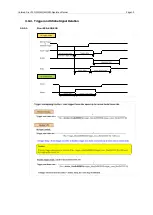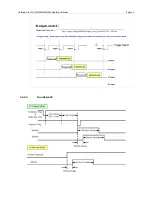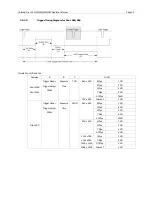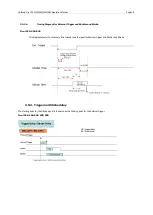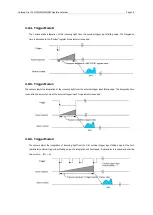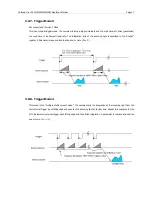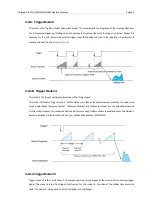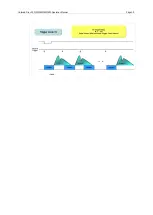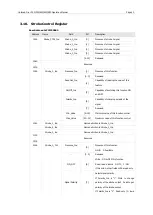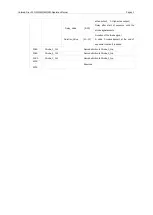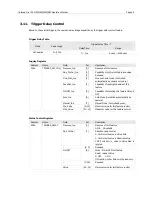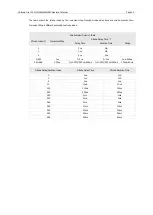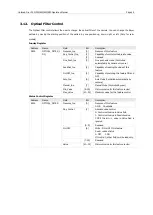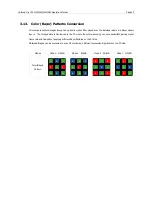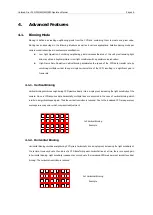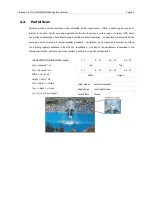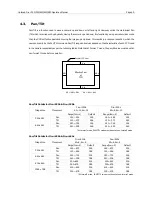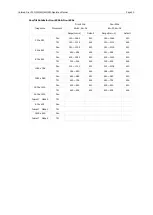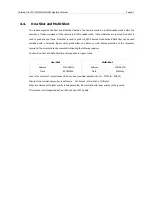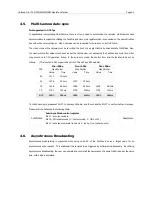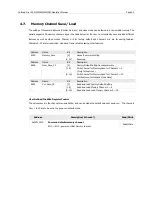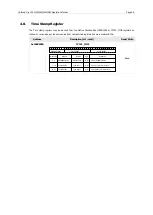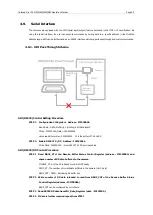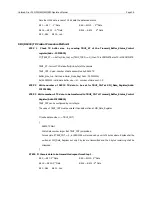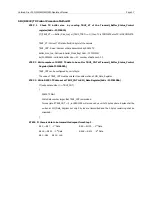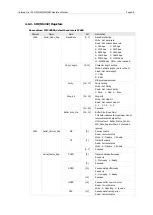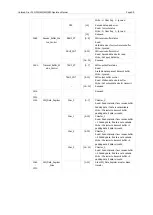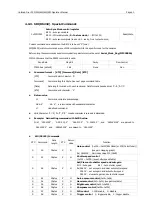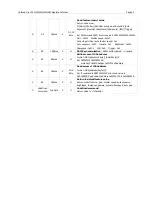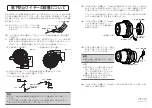
Unibrain Fire-i 530/550/630/830/850 Operation Manual
Page 46
4.
Advanced Features
4.1.
Binning Mode
Binning is defined as reading neighboring pixels from the CCD and combining them to create one pixel value.
Binning has an advantage in the following situations as well as in various applications. Relative binning mode per
camera model is described in each camera specification.
Low Light Operation: Combining neighboring pixels increases the area of the unit pixel receiving light
and may obtain a brighter picture in low light conditions with a possible noise reduction.
High Frame Rate Operation: Vertical Binning accelerates the speed of the CCD data transfer rate by
combining multiple vertical lines per single horizontal line of the CCD; resulting in a significant gain in
frame rate.
4.1.1.
Vertical Binning
Vertical binning combines neighboring CCD pixels vertically into a single pixel; increasing the light sensitivity of the
camera. Since a CCD acquires data horizontally, multiple lines are acquired in the case of vertical binning which
results in a significant speed gain. Thus the vertical resolution is reduced. Due to the increased CCD area per pixel,
over exposure may occur which may require adjustment.
1x2 Vertical Binning
Example
4.1.2.
Horizontal Binning
Horizontal binning combines neighboring CCD pixels horizontally into a single pixel; increasing the light sensitivity of
the camera. However, due to the nature of a CCD transferring each horizontal line at a time, there is no speed gain
in horizontal binning. Light sensitivity increase may occur, due to the increased CCD area per pixel, similar to vertical
binning. The horizontal resolution is reduced
.
2x1 Horizontal Binning
Example

